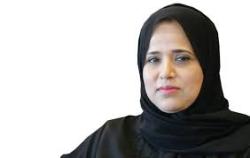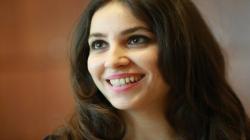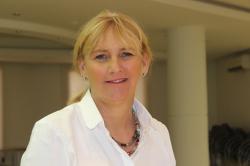

1:00 am AST - 2:30 am AST
Past Event
Content from the Brookings Doha Center is now archived. In September 2021, after 14 years of impactful partnership, Brookings and the Brookings Doha Center announced that they were ending their affiliation. The Brookings Doha Center is now the Middle East Council on Global Affairs, a separate public policy institution based in Qatar.
The Brookings Doha Center (BDC) hosted a panel discussion on March 7, 2018, the eve of International Women’s Day, to reflect on women’s issues in the Middle East. The panel included discussions surrounding women in conflict, sexual violence against women, and the participation of women in politics. The panel included Maha Ghrer, project officer at The Day After (TDA), a Syrian-led civil society organization; Noor Al Malki Al Jehani, executive director of the Doha International Family Institute (DIFI); Maya El Ammar, independent feminist activist and former spokesperson for KAFA (Enough), a non-governmental organization in Lebanon; Shaimaa Aboelkhir, an Egyptian journalist with Al Araby TV in London; and Beverly Milton-Edwards, visiting fellow at the Brookings Doha Center and professor of politics at Queen’s University Belfast. Martine Dennis, a news presenter with Al-Jazeera English, moderated the event, which was attended by members of Doha’s diplomatic, academic, and media communities.
Martine Dennis introduced the various panelists and their unique backgrounds as activists, journalists, and academics working in the region. The discussion began with Noor Al Malki Al Jehani.
Al Jehani believes that seven years after the Arab Spring, the situation of women’s rights in the region is complex. It is necessary to think about the 2011 uprising and why it happened. Economic decline and human rights were major variables, and women played a role in the protests from day one. She contends that women’s demands were rooted in their position as both women and citizens. Some people argue that the Arab Spring opened up space for women in the public sphere, while others contend that these changes came with a high price tag. She argues that it came with violence and intensified sexual harassment. As far as the Arab Spring is concerned, she sees no winners and the region has been turned upside down.
Of course, she argues, it is simplistic to say that the Arab Spring hurt women; one must see how it also empowered women and encouraged greater civil engagement. Women now have a new sense of empowerment and a more visible presence that cannot be taken away from them. The transitions in the Arab region are still works in progress and the situation is still fluid. Civil society should keep pushing the advancement of women’s rights. Many challenges remain such as the impact of conservative groups and their efforts to rescind the hard-earned gains that women have won in the public sphere. Security issues remain one of the most significant obstacles that women are facing. She highlighted that Arab governments need to adhere to their domestic and international legal commitments to protect women’s rights.
Shaimaa Aboelkhir focused her comments on the challenges that women activists and journalists specifically experience, instead of discussing the progress, or lack thereof, of women’s rights in general. As an Egyptian journalist herself, she has first-hand experience of the various problems that journalists and activists face in their everyday work. She currently lives in London, in what she describes as self-imposed exile, due to these problems. Aboelkhir describes how these women are attacked in a systematic way throughout the region, but especially in the Egyptian context. Oppression increased throughout the region after the 2011 uprisings, and women journalists and activists have especially endured physicals attacks and rape. However, taking the Egyptian example, she also argued that physical attacks on women activists and journalists actually predate 2011, as she herself was physically attacked.
Maha Ghrer described her experience in the Syrian context. There has been an increase in the number of women taking part in the Syrian revolution, and the number of women detained and raped has also risen. Extremist groups also assault women, so women know there is a high price if they want to get involved in the revolution. She believes that we should not call these women victims because they are fighters and survivors. The main goal of her work is to give women a space to express themselves and communicate their experiences after detention. Women have very different experiences in prisons than men, and they need support in different ways. Ghrer posits that while men are praised and supported, women are criticized and left feeling very isolated when they get out. Sometimes their family deserts them, or they are deprived of their own children. She ended her comments by calling for action and support for Ghouta.
Beverly Milton-Edwards began with a look at women’s marginalization. She noted the progress made for women in the region, especially in the domains of education and life expectancy. However, these positive changes have not done enough to close the gender gap in the Middle East and North Africa (MENA). In the 2017 report from the World Economic Forum, out of the 15 worst countries in gender parity, 10 of them can be found in this part of the world. According to the World Bank, just over 25 percent of women in the region are employed or are actively looking for work in the region. She argues that if women were incorporated in the economy of the region, there would be growth.
Milton-Edwards believes that we can applaud the gains made in political sphere, but women still need to be better represented in legislative bodies. Quotas have been good news for women because they have played a part in getting women across the threshold into parliament, though they have been controversial. She argues that governments need to be more proactive in implementing substantive reforms in gender parity. There are structural challenges that must be addressed for women in general, and especially women in conflict. Finally, she praised the courageous women and girls who have played a pivotal role in shaping the dynamics of the 2011 uprisings, and it is the duty of men in these communities to support these women.
The final panelist, Maya El Ammar, argued how women and their presence should not be seen as exceptional. Societies are shaped by a context of a patriarchical history. She contends that there is a real battle that must be fought. So, she asks, will men be willing to lose their privilege? Men are present is all spheres of life, making decisions in the highest positions of power. For her, men must learn to listen to the voices of women. She believes that men should take part and work more with women. She holds up the example of the “He for She” campaign. Nevertheless, the women’s rights initiatives should not only rely on men. She emphasized that campaigns featuring mostly women must still be viewed as legitimate.
The panel concluded with a discussion on the culture surrounding women’s rights in the MENA region. Al Jehani argued that governments reinforce negative stereotypes, and this must change. Both men and women in the region do not support gender equality as much as they should. She believes that governments and political leaders should lead by example and support women’s voices as publicly as possible. El Ammar and Aboelkhir touted the #MeToo campaigns and the manner in which it is changing the conversation on sexual harassment. Milton-Edwards focused on the economic sphere, suggesting that women hold the key to the economic revival of the region.




Noha Aboueldahab
August 23, 2021

August 23, 2021

Yasmina Abouzzohour
August 19, 2021